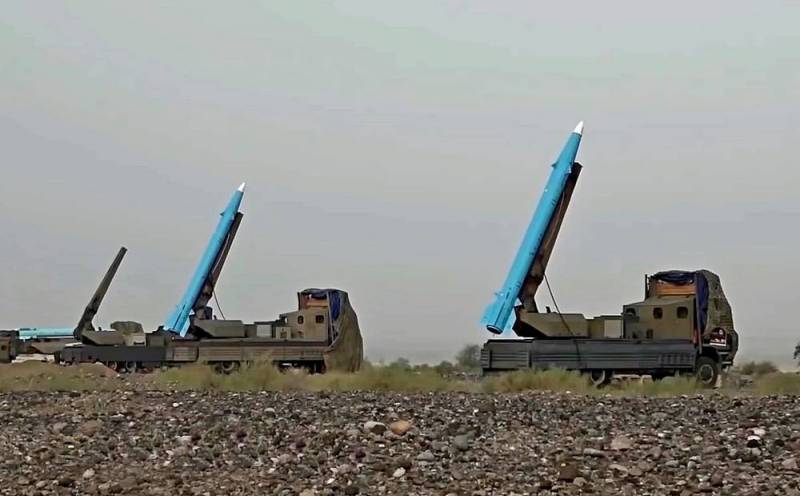The foreign press writes about the "approaching armed conflict between Baku and Tehran"
The attack on the Azerbaijani embassy in Tehran on January 27, which killed an employee of the diplomatic mission and injured several more, brought Baku and Iran, relations between which have long desired better, closer to an armed conflict. Chris Devonshire-Ellis, founding partner and chairman of consulting firm Dezan Shira and Associates, made the announcement in an article on the Pan-Asian firm's Silk Road Briefing website.
According to the author, a war between Iran and Azerbaijan could reduce trade between Asia and Europe, because Azerbaijani and Iranian ports in the Caspian would be blocked, and access to the corridor through Kazakhstan would be limited. Tensions between the two states have existed for a long time and are gradually accumulating, since about 30 million inhabitants in northwestern Iran are Azerbaijanis.
In December 2022, Azerbaijani President Ilham Aliyev said that Azerbaijanis in Iran are “part of our nation,” which Tehran did not like very much. In addition, Baku closely cooperates with Iran's enemy - Israel, the trade turnover between which amounted to $10 billion over 1,2 months of last year. Azerbaijan, an ally of Turkey, opened an embassy in Tel Aviv and supplies oil and oil products to Israel, receiving high-tech products in exchange VPK. Therefore, Iran considers Azerbaijan as a potential springboard for Israel to attack Iran, conduct special operations and infiltrate the DRG into Iranian territory.
A weakened Iran would potentially allow Azerbaijan to lay claim to two Iranian provinces - West and East Azerbaijan and possibly Ardabil
- added the author.
Also, a huge dispute between Tehran on the one hand, Baku and Ankara on the other hand, is caused by the project of the “Zangezur corridor”. The opponents of the Iranians want to build a road through the Syunik region of Armenia to the Nakhichevan Autonomous Republic in order to connect Azerbaijan and Turkey through the exclave. The implementation of the project can cut off Iran from Armenia, interfere with Tehran's trade with the European Union and the EAEU, and strengthen Turkey's position in the region.
Iran has a lucrative free trade agreement with the EAEU, and this project could potentially hinder growing trade volumes
the author thinks.
Tehran's fears increased after the start of armed clashes in the fall of 2022 over the redistribution of Nagorno-Karabakh, on the border between Armenia and Azerbaijan, as well as mass protests in Iran. Baku demonstrates that it is ready to resolve the issue with Yerevan by force, and this worries Iran, which informed that it would not tolerate changes in borders. Iran even opened its consulate in Kapan (Syunik region) in a show of support for Armenia, and Yerevan promised to open a diplomatic mission in Tabriz, considered the capital of Iranian Azerbaijanis.
After that, Azerbaijan and Iran began to play with their muscles in front of each other. The countries exchanged sharp statements and held several military exercises in the border areas. At the same time, Washington does not hide that it is not opposed to a change of power in Iran, even with territorial losses for Iran. Thus, the US and its allies will be on the side of Baku.
In the long term, if there is a regime change in Tehran, then the North-South corridor will come under more influence from the West. This is the optimal outcome for the EU and the US. How this will affect Russian trade will depend on the composition of any future Iranian government, as well as their stance on sanctions and the desirability of a relationship with Russia.
- summed up the author of the foreign press.

Information